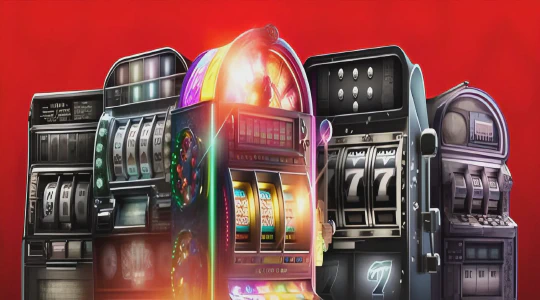What is the Legal Age for Gambling in Casinos?
Casinos can be a thrilling experience; the sound of slot machines ringing, the excitement of the roulette table, and the allure of the jackpot can be too tempting to resist. However, not everyone is eligible to enter a casino and gamble. In most countries, there is a minimum age requirement to participate in gambling activities legally.
If you’re thinking of visiting a casino for the first time, you might be curious about the minimum age requirement. It’s crucial to understand the age limit to avoid any unnecessary legal trouble or disappointment. In this article, we will discuss the minimum age limit for casinos in different countries and explore why they have been put in place.
Gambling is one of the oldest and most controversial industries globally, with many people pointing out the negative effects it can have on society. For this reason, governments around the world have set age limits on gambling activities, and casinos are no exception. By preventing minors from gambling, authorities aim to protect them from addiction, corruption, and other negative consequences associated with gambling. So, let’s get started and find out the minimum age requirements for casinos worldwide.
Legal Age for Gambling
When it comes to gambling, there is a legal age requirement that varies from one country to another. In the United States, the legal gambling age varies between 18 and 21 years old, depending on the state. Some states might allow some forms of gambling, such as lottery, at a younger age, while others might require a higher age for certain activities Mostbet.
It is important to note that even if a state allows gambling at 18, certain establishments might require a higher age limit for their own policies. For example, a casino might require patrons to be at least 21 years old to enter the premises, regardless of what the state allows. It is crucial to always check the age limit before engaging in any type of gambling activity.
In addition to age requirements, there might also be certain identification requirements to prove one's age and eligibility to gamble. For instance, a government-issued ID such as a driver's license or passport might be required to enter a casino or purchase a lottery ticket.
- If you are not yet of legal gambling age, it is important to respect the law and avoid any type of gambling until you reach the legal age.
- Always check the age and identification requirements before engaging in any type of gambling activity.
- Be aware that different establishments might have their own policies regarding age limit, so always double-check before visiting.
Gambling should always be done in a responsible and legal manner. Make sure to educate yourself on the rules and regulations in your area before participating in any gambling activity.
Age Requirements Around the World
United States
Minimum Age: 21 years old for most casinos and gambling establishments across the country.Exceptions: In some states, 18-year-olds can gamble at certain venues, such as tribal casinos.
Canada
Minimum Age: 18 or 19 years old, depending on the province.Exceptions: In Quebec, the legal gambling age is 18, while in Alberta, Manitoba, and Yukon Territory it is 19.
Australia
Minimum Age: 18 years old for all types of gambling.United Kingdom
Minimum Age: 18 years old for most types of gambling.Exceptions: Some types of gambling, such as lottery and football pools, can be played by 16-year-olds.
Japan
Minimum Age: 20 years old for all types of gambling.China
Minimum Age: 21 years old for all types of gambling, except for the lottery, which can be played by 18-year-olds.Singapore
Minimum Age: 21 years old for all types of gambling.Exceptions: 18-year-olds can enter and gamble in certain designated areas of the two casinos in the country.
Age Limits in the United States
In the United States, the minimum age for most types of gambling activities varies from state to state, as each state has their own set of laws and regulations. However, generally speaking, the minimum age to enter a casino is 21 years old in most states. This includes playing casino games like slots, blackjack, and roulette as well as purchasing lottery tickets and betting on horse racing.
It is important to note that in some states, there are exceptions to this rule. For example, in Rhode Island and Minnesota, 18-year-olds can play bingo and participate in certain types of lottery games. Additionally, in Alaska and Idaho, 18-year-olds can participate in pull-tab games, which are similar to scratch-off lottery tickets.
It is also important to remember that underage gambling is a serious offense, and can result in fines, community service, and even jail time. Therefore, it is crucial to always check the laws in your state before attempting to gamble if you are under the age of 21. Additionally, casinos and other gambling establishments take underage gambling very seriously, and have strict policies in place to prevent anyone under the legal age from participating in any type of gambling activity.
- Summary: The minimum age for gambling in the United States varies from state to state, but generally most types of gambling activities have a minimum age requirement of 21 years old. Some states have exceptions to this rule, allowing 18-year-olds to participate in certain types of lottery or bingo games. It is important to always check state laws before attempting to gamble, as underage gambling is a serious offense with severe consequences.
State-Specific Gambling Law
Gambling laws differ from one state to another in the United States, and it is important to be aware of the specific laws related to gambling activities before participating in them. The age limit for gambling varies depending on the state in which the casino or other gambling establishment is located.
- Nevada: In Nevada, the minimum age for gambling is 21 years old. This applies to all forms of gambling, including casinos, sports betting, and online gambling. It is strictly enforced, and underage gambling is considered a criminal offense.
- New Jersey: In New Jersey, the minimum age for gambling is also 21 years old. This includes casinos, horse racing, sports betting, and online gambling.
- California: California allows some forms of gambling at age 18, including lottery, bingo, and poker. However, for casino gambling, the minimum age is 21 years old.
It is important to note that some states have additional restrictions on certain forms of gambling. For example, in Utah and Hawaii, all forms of gambling are illegal, including lotteries and bingo. In some states, such as Alaska and Wyoming, there are no casinos at all.
Before participating in any gambling activity, it is important to check the specific laws in your state to avoid any legal issues or penalties.
Types of Gambling with Age Restrictions
There are various types of gambling, and each has its own age restrictions. The different types of gambling include:
- Casinos: Casinos are establishments which offer a wide variety of gambling options, including table games, slot machines, and other games of chance. The minimum age to enter a casino varies depending on the country or state regulations, and it typically ranges from 18 to 21 years.
- Lottery: Lotteries are games of chance where players buy tickets with a chance to win a prize. The minimum age to purchase lottery tickets varies by state, but it is typically 18 years old.
- Bingo: Bingo is a social game of chance typically played in community centers, churches, or bingo halls. The minimum age to play bingo varies by state, but it is typically 18 years old.
- Online Gambling: Online gambling refers to playing casino games, poker, or betting on sports by using a computer or mobile device. The minimum age to participate in online gambling depends on the specific website, but it is typically between 18-21 years old.
It is important to note that although the minimum ages to gamble may vary by jurisdiction, it is always important to gamble responsibly. Gambling should only be considered as an entertaining activity and not a means to solve financial problems.
Penalties for Underage Gambling
Gambling underage is a serious offense, and every country and state has its own laws and regulations to deal with it. The penalties for underage gambling vary from fines to jail time depending on the severity of the situation.
Fines: One of the most common penalties for underage gambling is a fine. The amount of the fine can vary depending on the country or state, but it can range from a few hundred dollars to thousands of dollars.
Revocation of License: In most cases, the casino itself can be fined for allowing underage individuals to gamble. However, larger fines may also include revocation of the casino's license, which can be detrimental to their business.
Community Service: Some jurisdictions may require underage individuals caught gambling to complete community service. The purpose of community service is to instill the value of giving back to society in place of punishment.
Criminal Charges: In some extreme cases, underage gambling can lead to criminal charges. This can be especially severe if the underage individual is caught manipulating or cheating during the game.
Impact on Future Opportunities: In addition to the immediate penalties of underage gambling, it can also have long-term effects. A criminal record can limit future opportunities, such as getting a job or pursuing certain careers.
| Penalties | Severity |
|---|---|
| Fines | Low to Medium |
| Revocation of License | Medium |
| Community Service | Low to Medium |
| Criminal Charges | High |
| Impact on Future Opportunities | High |
It is essential to remember that underage gambling is not only against the law but also incredibly risky. It can lead to addiction, financial ruin, legal troubles, and so much more. Therefore, everyone should familiarize themselves with their local laws and take steps to prevent minors from accessing gambling facilities.
How is Age Verified?
When entering a casino, it is common practice for the establishment to request identification in order to verify the age of the individual. Typically, acceptable forms of identification include government-issued identification cards such as a driver's license or passport.
Many casinos also have their own security measures in place to prevent underage individuals from accessing the gaming area. These measures may include security personnel and surveillance cameras that monitor the entrances and exits of the casino.
In addition, some casinos may require that individuals sign a statement verifying that they are of legal age in order to enter the gaming area. These statements are legally binding and can be used as evidence in court if the individual is found to have lied about their age.
- Examples of accepted forms of identification:
- Driver's license
- Passport
- Military ID
- State-issued ID card
Overall, casinos take age verification very seriously in order to comply with state and federal regulations and prevent potential legal and financial consequences.
Social Implications of Underage Gambling
Underage gambling has serious social implications that can negatively affect the individual, the family, and the community. For the individual, underage gambling can lead to addiction, financial problems, and even criminal activity. Gambling addiction can cause a person to neglect their responsibilities, such as school, work, and relationships. It can also lead to depression, anxiety, and substance abuse.
For the family, underage gambling can cause financial strain as the young person may use money intended for important expenses, such as food or rent, to fuel their gambling habit. This can result in tension and breakdowns in family relationships. Additionally, parents may feel responsible for their child's addiction and may experience feelings of guilt, shame, and hopelessness.
The community can also be affected by underage gambling, as it can lead to an increase in crime, particularly theft and fraud. It can also contribute to the breakdown of social norms and values, as young people may seek to emulate the thrill-seeking behavior of adult gamblers. Furthermore, underage gambling can lead to negative stereotypes and marginalization of young people.
Overall, underage gambling is a serious issue that requires education, prevention, and intervention efforts to address its social implications. By raising awareness and providing support for young people and their families, we can work towards creating a healthier and safer community for all.
Tips for Responsible Gambling
Gambling can be a fun and exciting activity, but it's important to make sure that it doesn't become a problem. Here are some tips for responsible gambling:
- Set a budget: Before you start gambling, decide on a budget that you're comfortable with and stick to it. Don't gamble with money that you can't afford to lose.
- Take breaks: Gambling can be intense and it's important to take breaks to clear your head. Set a timer for yourself and take a break every hour or so.
- Don't chase losses: If you lose money, don't try to win it back by gambling more. This can lead to even bigger losses and gambling addictions.
- Know when to quit: Set a limit for your winnings and losses. If you reach your limit, quit while you’re ahead.
- Don't drink and gamble: Drinking can impair your judgment and lead to poor decisions while gambling.
- Get help if you need it: If you feel like your gambling is becoming a problem, seek help from a professional. There are many resources available to help you overcome gambling addiction.
By following these tips, you can ensure that gambling remains a fun and enjoyable activity without becoming a problem in your life.
Alternatives to Gambling for Young Adults
Gambling is a popular activity for many adults, but it’s important to remember that it is only legal for those over a certain age. For young adults who are not yet able to gamble, there are still plenty of other activities they can participate in that are just as exciting and engaging.
Here are some alternatives to gambling for young adults:
- Sporting events: Attending a sporting event can be just as thrilling as gambling. From football to basketball to baseball, there are plenty of sports to choose from. Plus, you can enjoy the excitement of being part of a large crowd cheering on your favorite team.
- Concerts and festivals: Listening to live music can be a great alternative to gambling. Concerts and festivals have a unique energy that can be just as exhilarating as winning at a casino. Plus, you can discover new artists and bands that you may never have heard of before.
- Outdoor activities: Spending time outdoors can be a great way to have fun while also getting some exercise and fresh air. Activities like hiking, biking, and rock climbing can be exciting and challenging. Plus, they can be a great way to bond with friends and make new ones.
- Volunteering: Helping others can be both rewarding and fulfilling. By volunteering at a local charity or non-profit organization, young adults can make a positive impact in their community while also gaining valuable skills and experience.
In conclusion, while gambling may seem like a fun activity, it’s important for young adults to understand that it is only legal for those over a certain age. There are plenty of other exciting and engaging activities that they can participate in that are just as fun and rewarding.
Support for Problem Gamblers
Gambling can be a fun and exciting activity, but it can also quickly become addictive and problematic for some individuals. If you or someone you know is struggling with problem gambling, there are resources available to provide support and assistance.
Hotlines: There are various hotlines available for problem gamblers and their loved ones to contact for help and advice. These hotlines typically offer confidential and free assistance, and can provide referrals to local support groups and treatment centers.
- National Problem Gambling Helpline: 1-800-522-4700
- Gamblers Anonymous: 1-855-222-5542
Counseling: Professional counseling can help problem gamblers identify the root of their addiction and develop strategies for managing their behavior. Counseling can be done one-on-one or in a group setting, and can be accessed through healthcare providers, community mental health centers, and addiction treatment facilities.
Self-Help Groups: Self-help groups, such as Gamblers Anonymous, provide a supportive community of individuals who are also struggling with problem gambling. These groups often offer peer support, advice, and accountability to help members stay on track with their recovery.
Remember, seeking help for problem gambling is a sign of strength and courage. Don't hesitate to reach out if you or someone you know is struggling with this addiction.


